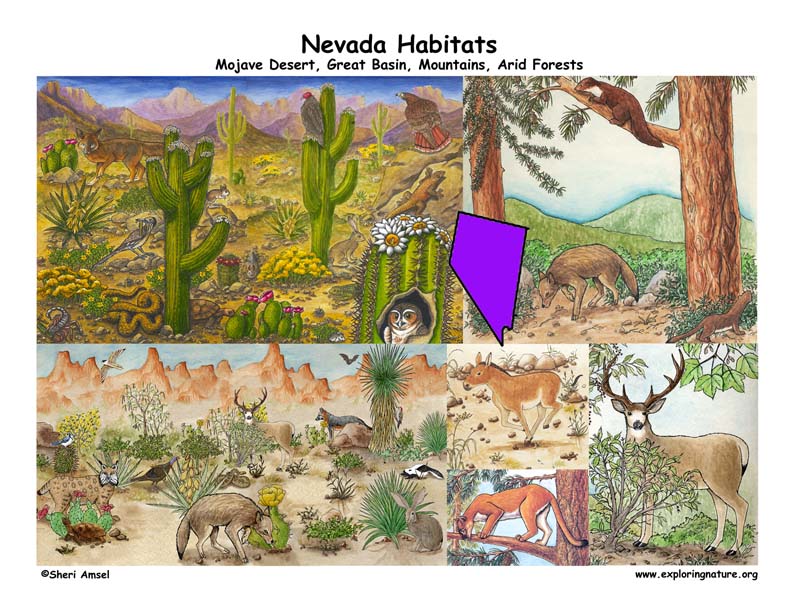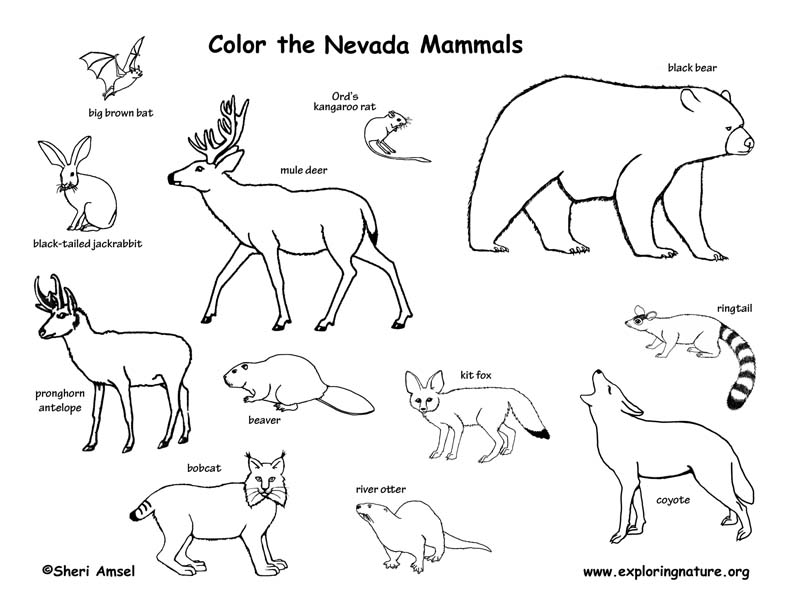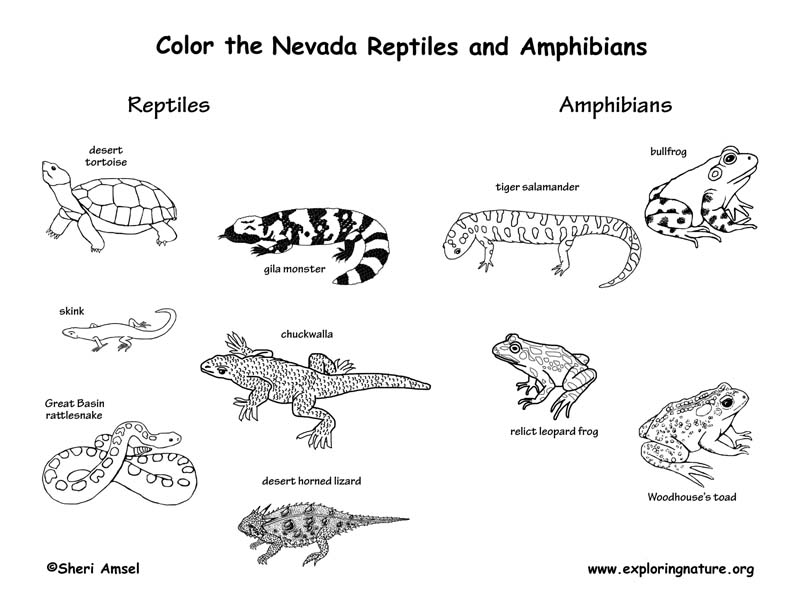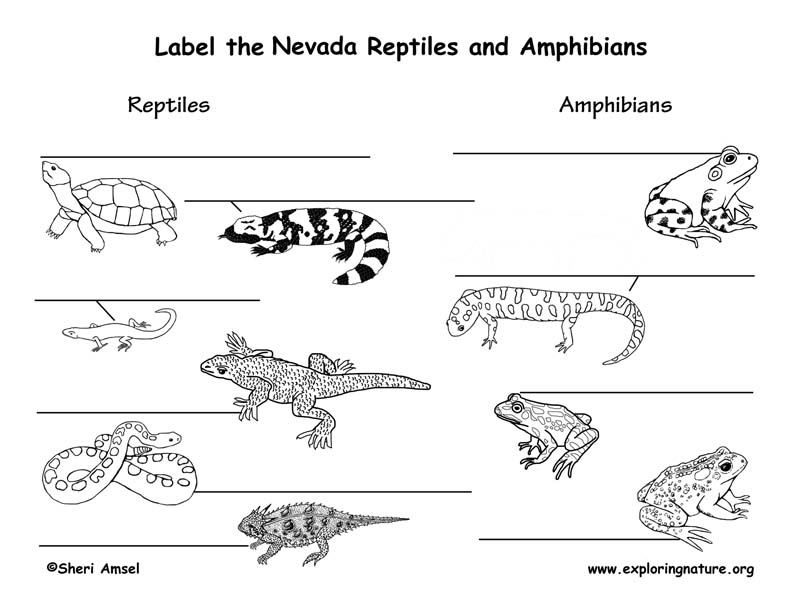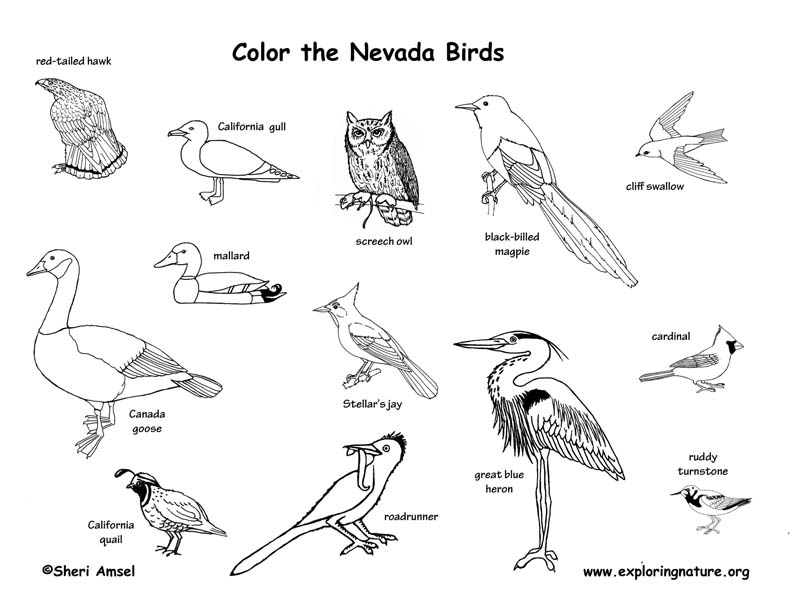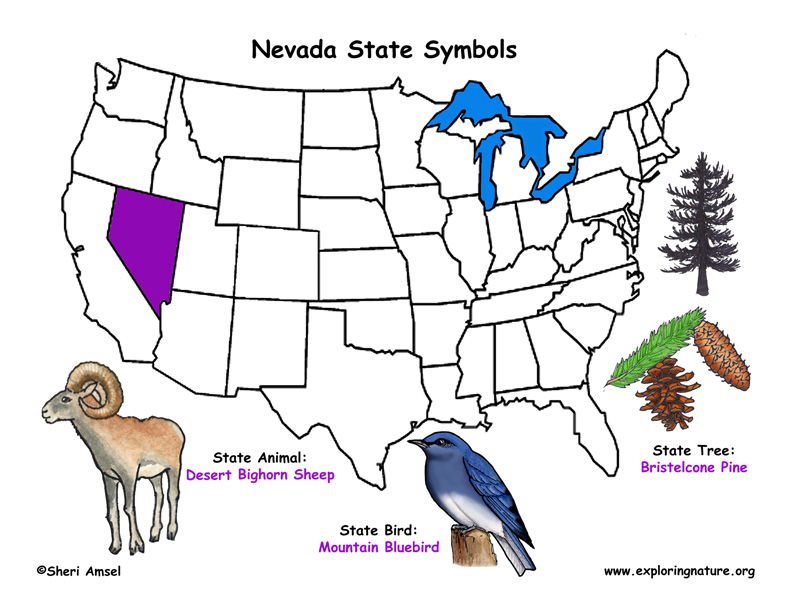

Nevada has a variety of habitats from arid mountains and valleys to stark deserts. Because Nevada is the driest state, it is tempting to think of the whole state as a desert and indeed the southern third is within the Mojave desert. Yet Nevada is actually a mountainous state with more than 300 mountain ranges running north-south and more than 170 peaks between 2,000 and 13,000 feet tall. The state also has almost 10 million acres of forest and many rivers including the Colorado River (southern border), Carson River, Humboldt River and many others.
Nevada is made up of almost 71 million acres (7th largest state). 86% of Nevada (61 million acres) is owned by the federal government - making it the state with the most federal land. These lands include wilderness areas, national recreation areas and refuges, grazing lands and other protected lands.
Much of Nevada is within the Great Basin (all of northern Nevada), a huge arid area that stretches into five states (Nevada, California, Idaho, Utah and Oregon). The western edge is formed by the Sierra Nevada and Cascade Mountains which act as a "rain shadow" blocking rain from the Pacific from reaching the Basin. The eastern edge is formed by the Rocky Mountains and Colorado Plateau. The Great Basin is a closed watershed where moisture does not flow out. The mountains in the Great Basin have alpine and subalpine habitats near the top. As you descend the mountain, you would pass through a ponderosa pine zone into a pinyon pine-juniper zone and then to the valley floor to sagebrush and creosotebush zones.
For more information about Nevada's mammals (including Latin names) click on individual animal links or for another (off-site) resource: LINK
Amphibian
treefrog (Pacific)
Reptiles
For more information about Nevada's amphibians and reptlies (including Latin names) click on individual animal links or for another (off-site) resource: LINK
To look up individual birds go to the Exploring Nature Birds Database.
For more information about Nevada's birds (including Latin names) click on individual animal links or for another (off-site) resource: LINK
When you research information you must cite the reference. Citing for websites is different from citing from books, magazines and periodicals. The style of citing shown here is from the MLA Style Citations (Modern Language Association).
When citing a WEBSITE the general format is as follows.
Author Last Name, First Name(s). "Title: Subtitle of Part of Web Page, if appropriate." Title: Subtitle: Section of Page if appropriate. Sponsoring/Publishing Agency, If Given. Additional significant descriptive information. Date of Electronic Publication or other Date, such as Last Updated. Day Month Year of access < URL >.
Amsel, Sheri. "Nevada Habitats, Mammals, Birds, Amphibians, Reptiles" Exploring Nature Educational Resource ©2005-2024. December 17, 2024
< http://www.exploringnature.org/db/view/837 >

